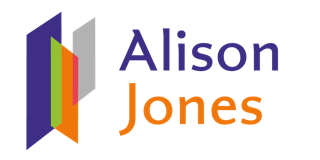Every month I write a ‘Digital Digest’ for the Independent Publishers Guild and this month there was a slew of statistics that, on the surface at least, are hard to swallow for a digital publishing enthusiast like myself. I had a bet with our production director back in 2010 that half our revenues would be digital by 2013: I lost. (Although to be fair it wasn’t too far off – scholarly publishers selling to libraries migrated their revenues to digital more successfully than trade publishers selling to consumers have managed so far.)
Association of American Publishers figures show static or declining ebook sales, in an overall context of falling sales year on year for the first quarter of 2016. Compared with March 2015, they report a growth in paperback print revenues of 5.4% and a decline in ebook revenues of 21.4%. The only really bright spot is digital audio, which grew by 33.1%.
Penguin Random House’s figures reported in The Bookseller support these findings, with revenues for the first half of 2016 falling significantly partly as a result of lower ebook sales, down 16.7% by volume year on year, and partly (to be fair) because of the absence of megasellers such as Girl on the Train which they’d enjoyed in the same period last year.
It’s hard for a book-loving digital enthusiast to face up to this. Why aren’t ebooks more successful?
Well, the answer of course is that it depends how you’re measuring success. Ebooks are wildly successful for many self-published authors, and readers (like me) who love the frictionless freedom of being able to download and read pretty much any book at any time wouldn’t be without their Kindle app.
But there’s obvioulsy something going on here beyond pure economics and practicalities that makes print more resilient than I had expected back in 2010 – I certainly didn’t think then I’d still be reading print books in 2016.
Tom Chatfield, author of Live This Book, put it this way when we spoke in The Extraordinary Business Book Club (episode 29, due to release 2 October):
“A book is a wonderful context for this empowering, wide-ranging, enabling discussion… no technology is neutral. There’s no such thing as a neutral tool that you just use. Everything wants something from you… I do like this idea very much of looking at books as a technology and saying, well, what they want from us is often something very special. What they want from us is us to give a lot of high-quality attention, but then also think our own thoughts and have an extraordinary latitude and degree of freedom in interpreting, mulling over, making our own, extrapolating from, and learning from in quite a rich way. We need quite a lot of mental equipment before we can get a lot out of a book, but the amount we can get out of sustained serious writing, or sustained entertaining writing, is also very great, and it’s underspecified, by which I mean, it can be taken in many, many different directions.”
That’s chewy, but the fact that a print book absorbs us totally, with all our senses, and without the temptation of other distractions just a click away, changes the quality of our interaction with it. There’s no way I’d be without my ebooks, but I realize now that there will always be space in my life for print books too, and for now at least they offer a richness of reading that I just don’t get from a cold hard screen.
